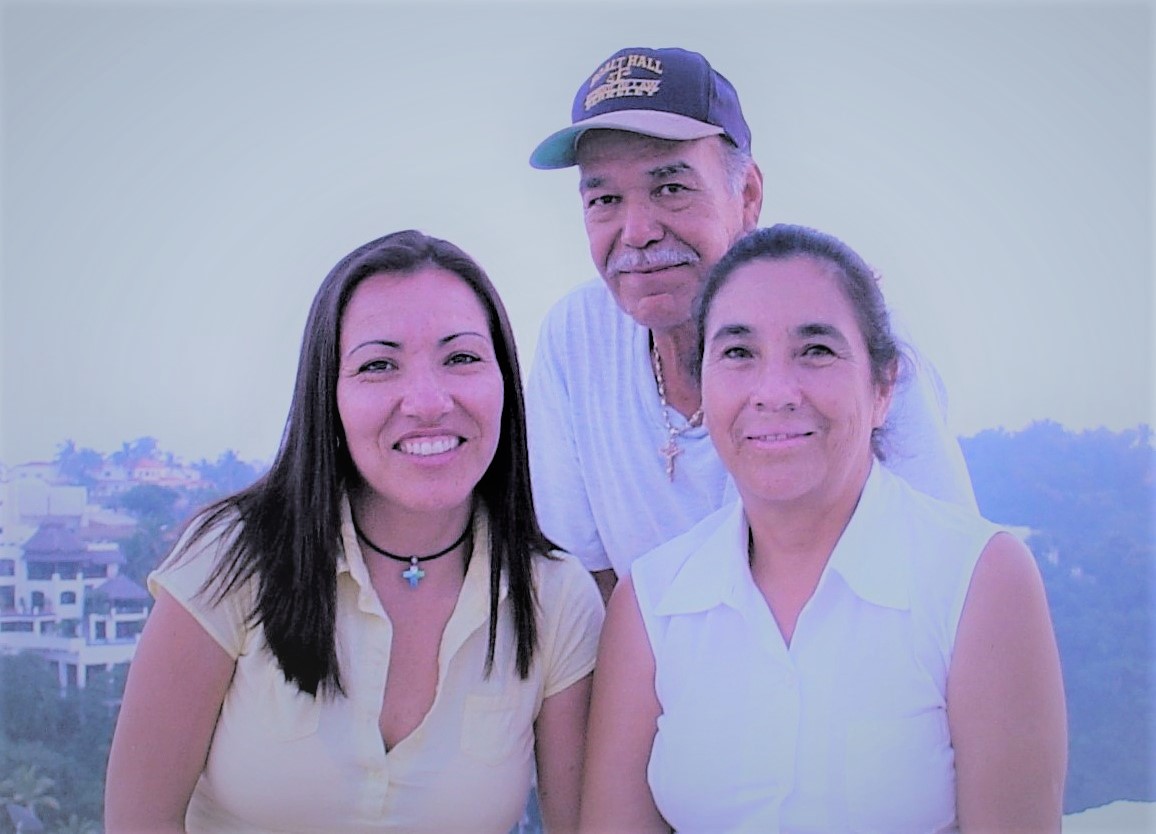About us
María Pánfila's Story

She was a kind, resilient, loving, soft spirit and devoted mother, wife, daughter, and sister.
Timoteo was a handsome driven, hard-working, and compassionate man who had a strong sense of community responsibility. They were born in El Niño Jesus (Baby Jesus), a rural small town miles off the main road in the city of Jerez in the state of Zacatecas, Mexico. They migrated to the United States to give their children a brighter future with opportunities.
While there were loving moments during Pánfila’s and Timoteo’s marriage, there was also a very dark side to that relationship that impacted their children and family. Timoteo abused his family, especially his wife María Pánfila. The abuse primarily focused on the head in the form of choking, smothering, throwing objects at her head, shaking, and slamming her head against walls and other surfaces.
María Pánfila took aspirin every day, complaining of unbearable migraine headaches. She often locked herself in the bedroom with the lights turned off. She kept all blinds closed to keep the light out in her home. Often, she asked María, as the eldest of the children, to take her siblings outside because she could not tolerate the noise. She would nap for hours, and as she got older, the naps grew longer. María Pánfila’s sensitivity to light and noise intensified as well. When María Pánfila was in her mid-50s, her family noticed that her memory was not the same and she was now fearful of crowds, suffered frequent crying spells, and other debilitating symptoms.
One day María, found her mother in the worst case ever in her parents home. María Pánfila could hardly stand and was crawling from room to room.
Soon after, María Pánfila started seeing doctors—especially neurologists. Her doctors asked the same question again and again: “What type of head trauma has your mother had?” María always answered the same way: “Over 40 years of severe, ongoing trauma.” The doctors focused on treating her physical symptoms. They ignored her history of violent abuse by her husband.
María Pánfila never played a violent sport or fought in a war. But the assaults she endured on her head and body were at least as acute as those experienced by athletes and soldiers, and the effects were the same. When all the tests were finished, the neurologist told María that her mother was suffering from moderate to severe Alzheimer’s disease. The head trauma had been so great and so consistent that there was little they could do.
María insisted with the neurologists that the family did not have a history of dementia and that there was something else going on due to the abuse to the head for over 40 years. However, the doctors ignored her.
As a social worker, María created a personal system of care for her mother as she found the health and social support networks simply not trained to help her family’s unique situation.
As for María’s father, over the years she came to better understand much more about him and his deepest pains. In moments of peace and clarity, they talked about the domestic violence he experienced throughout his childhood at the hands of his father, Porfirio. Porfirio fought in the Mexican Revolution as revolucionario and saw violence as the only way to discipline and resolve conflict with his 5 children and wife. Timoteo shared how his father’s abuse often focused on the head. It was impossible to get help in a rural town that condoned DV. Timoteo confided that he wished he could stop the abuse he was inflicting on his family, but he simply could not control his rages, irritability, impulses, and other behavior. María now understands that his behavior was almost certainly rooted in the abuse he himself suffered as a child. She believes he had traumatic brain injury as a result of his own father’s domestic violence. And though she implored him to stop, Timoteo simply could not stop the violent outbursts and feared killing his wife or one of his children. He did real and lasting harm. He passed on July 30, 2013 from a tragic accident.
María Pánfila passed on June 20, 2015 from the debilitating effects of her abuse. She was receiving hospice care — bedridden, unable to speak or recognize her children. María was asked to donate her mother’s brain to ascertain the extent of the head trauma and cause of death. After three (3) and a half years and four (4) neuropathology exams, on January 17, 2019, Dr. Ann McKee, renowned neuropathologist and expert in neurodegenerative disease at New England Veterans Administration Medical Centers (VISN-1) and Professor of Neurology and Pathology at Boston University School of Medicine and Director of Boston University Chronic Traumatic Encephalopathy (CTE) Center, conclusively confirmed that María Pánfila died from CTE and Alzheimer’s disease. This devastating news only served to embolden María’s vision to end to domestic violence by bringing it into the light.
Today, María grieves her mother’s and father’s passing, too soon and far from peaceful. But she is strengthened and inspired by her faith and by the hope that with a full reckoning of the relationship between traumatic brain injury and domestic violence, another family may avoid such a fate.
PÁnfila's Mission
Increase Awareness of the Public Health Consequences of Domestic Violence
Pánfila is of Greek origin meaning friend of all, kind to everyone, loved by all and daughter loved by all. The Pánfila Domestic Violence HOPE Foundation believes that embracing all and loving all impacted by domestic violence is the only path to ending it. Pánfila wants to bring HOPE to all children, women, men, pets, and communities impacted by domestic violence, especially those living with DV-TBI and DV-CTE.
Video Documentary
This Hits Home
Dr. Garay-Serratos’ domestic violence – traumatic brain injury/chronic traumatic encephalopathy (DV-TBI/CTE) in the wake of learning that her mother’s repeated nonconcussive head impacts from María’s father caused CTE and possibly early-onset Alzheimer’s disease (AD), serves as the backdrop for This Hits Home, a powerful new feature documentary. These progressive neurodegenerative disorders led to her mother’s premature death. Her resolve that all who are affected by DV must be heard and helped stems from the awareness that her father’s uncontrollable rages, impulses, irritability, etc. were from CTE as a result of the DV-TBI he suffered throughout his childhood at the hands of his father.
This Hits Home reveals the invisible and silent epidemic of permanent TBI in women devastated by DV in the US. Along with Dr. Garay-Serratos’ story, the intimate and compelling stories of courageous DV females victims, survivors, and thrivers, insights from lawmakers and DV authorities, and the shocking revelations from world renowned experts at the Mayo Clinic, Harvard University, Boston University, and the University of Pennsylvania, combine to paint a chilling portrait of brain injury that forever changes the lives of individuals impacted by DV. Supported by the National Football League Players Association (NFLPA) and the American Brain Foundation (ABF), this feature unearths a distressing truth, begins a global discussion, and sounds the alarm for a call to action.
Dr. Garay-Serratos is the Protagonist, Associate Producer, and DV-TBI/CTE Expert Consultant for This Hits Home

